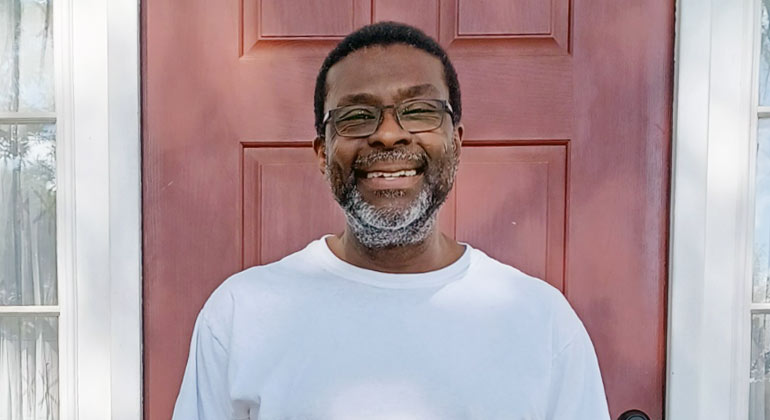
Prostate Surgery at Mount Sinai, Using Advanced Techniques, Restores a Patient’s Quality of Life
Symptoms from an enlarged prostate had practically turned Yoku Shaw-Taylor into a hermit. He had frequent and urgent need to urinate—often every hour or two—and sometimes, he couldn’t urinate at all.
Yoku was diagnosed with benign prostatic hyperplasia (BPH), a condition in which an enlarged prostate causes the urethra to narrow and decrease urine flow. It is not connected with prostate cancer. It affects a large number of men: about 50 percent of men between the ages of 51 and 60 have an enlarged prostate to some degree.
Yoku, a Maryland-based research scientist for the federal government, tried alternative and medical treatment in the Washington, DC, area for five years before finally turning to Mount Sinai’s Aaron M. Fischman, MD. Dr. Fischman is Professor of Diagnostic, Molecular and Interventional Radiology, Urology, and Surgery at the Icahn School of Medicine at Mount Sinai. His advanced approach solved the problem and helped Yoku return to his daily life.
Yoku’s pain started in 2017, when he was 51 years old. After Tamsulosin, acupuncture, physical therapy, and pelvic floor exercises didn’t help, Yoku had a prostate artery embolization (PAE) procedure done in Washington, D.C. The procedure was initially successful and helped somewhat with his urinary issues. But about a year after the surgery, Yoku’s symptoms returned, and were even more severe. His doctor recommended a second PAE. However, he warned Yoku that there would likely be only “negligible improvement.” He explained that he had had difficulty getting to one of the arteries and didn’t think it would be any easier the second time.
Yoku didn’t like the sound of that, so he put his research skills to the test and tracked down Dr. Fischman. “I really liked that Dr. Fischman was part of both the interventional radiology and urology departments. He also authored a lot of the latest academic articles on BPH treatment. I found that very reassuring.” Even though traveling to New York City would be inconvenient, Yoku was sure it would be worth it.
Dr. Fischman examined Yoku and recommended the same procedure, a PAE. But he explained that he used a more advanced approach than many interventional radiologists—including Yoku’s doctor in Washington. Typically, a PAE involves inserting a tiny tube (called a cannula) through the groin and into the arteries that bring blood to the prostate gland. Then doctors insert tiny gel pellets into the arteries to block blood flow to the prostate. That was the treatment Yoku initially received.
But Dr. Fischman makes a couple of key changes. First, he enters through an artery in the wrist, not the groin. “We think the wrist works better for several reasons. It's more comfortable for patients. The risk of bleeding is lower, so it's a safer procedure. And when you use the artery in the wrist, you come from above, whereas if you go from the groin, you come from below. That often makes it technically easier to find the smallest blood vessels.”
Dr. Fischman uses specialized equipment and tools to enable him to use the artery in the wrist. “I have this equipment because I do so many of these procedures; if you only do the occasional PAE, you probably don’t have it.”
Second, Dr. Fischman uses a type of glue instead of beads to seal the blood vessels in the prostate. “This glue seals the vessel better, and it doesn't allow the vessel to reopen,” explains Dr. Fischman. “We’ve learned that approximately 20 percent of the patients get recurrent symptoms after a successful PAE. The reason for this is either the arteries that were embolized open up again, or new arteries form that feed to the prostate.”
About five months after surgery, Yoku feels much better. “I would say it's close to 80 percent in terms of being able to pee with a stream and not feeling the urgency that I have to go right away.”
Yoku is very grateful to Dr. Fischman. “He's been very, very kind, very reassuring, and very responsive. I can’t tell you how much that has comforted me.” Yoku feels the same about the rest of the Mount Sinai team. “Everybody has been wonderful. I don't have one single complaint whatsoever.” Now that he feels so much better, Yoku wants to share his story with the world. “I know a lot of men will have prostate issues at some point. Some are worried about surgery. But I want them to know that surgery can bring tremendous relief.”